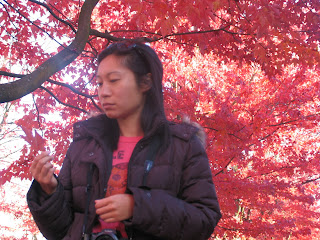Matthew 14:13-33 achieves two things: One, the reading reveals the identity of Jesus as the Son of God; and two, it teaches the nature and privilege of discipleship.1 These two points, the identity of Jesus, and faith in Jesus, merge in verse 33: “And those in the boat worshipped him, saying, ‘Truly you are the Son of God’’ (14:33).
We’ve probably heard both stories before. Jesus and the disciples are surrounded by a large crowd (14:14). It’s evening (14:15), and there’s little food. Rather than send people to fend for themselves, Jesus asks his disciples to gather what little food is available. Then he blesses God for his provision, and in an astonishing miracle feeds everyone with five loaves and two fish (14:16-19).
In the second story, Jesus sends the disciples away on boat, while he retreats for a time of prayer. Late at night, Jesus walks on the water to reach his disciples who are struggling to maneuver the boat in the wind (14:23-25). Not surprisingly, his disciples are terrified: “It is a ghost” (14:26), they cry out of fear. Jesus responds: “Take heart, it is I; have no fear” (14:27).
It’s good and right to be amazed in wonder at the powerful signs that Jesus performs. He multiplies food, he walks on water. He does the things that God does. Not only that, he says the things that God says too. His response to Peter and the disciples, “it is I” (14:27), identifies Jesus as the one who “reveals the God of Israel and is uniquely related to that God.”2
But we must not neglect the spiritual sustenance these stories point towards. There’s a rich symbolism here that points to Christ as our spiritual sustenance. Let’s illustrate this in three ways, using the story where Jesus feeds the multitude. This story is symbolic of a banquet. It’s theme is of a banquet feast, where Jesus is at the head of the table.3
I don’t think it’s a coincidence that Matthew placed this story immediately after the “flashback” about the death of John the Baptist.4 And he offers a powerful juxtaposition of two banquets, two kings, and two kingdoms: Herod’s banquet takes place in the royal court, and there’s “pride and arrogance, scheming, and even murder.” Jesus’ banquet, however, takes place in a deserted and “lonely” place, the wilderness, and there’s “healing, trust, and sharing.”5
More symbolism takes place in verse 19. Jesus, “taking” the loaves and fish, “looked up”, “blessed”, and “gave...to the disciples” (14:19). Surely this points to the Last Supper, where Jesus took bread, and blessed, and broke it, and gave it to the disciples..., 'Take, eat; this is my body. . . . Drink...for this is my blood'” (26:26). Both, the feeding of the multitude, and the Lord’s Supper, are banquets that point to Christ as the supreme provider of spiritual sustenance.
And finally, the feeding of the multitude also points to the heavenly feast, the Messianic banquet yet to come, at the consummation of God’s kingdom. Here, the people of God will be gathered in unity and community. Here, no one will be sent away to fend for themselves.
Indeed, the feeding of the multitude points to far more than the provision of physical sustenance, as important as that is. It points to Jesus as the provider of spiritual nourishment and salvation.
So, what should the response of a disciple be? What are we to do? I think Peter provides us with a great example in the second story.
He asks Jesus if he too can walk on water. Jesus says “Come” (14:29). Peter goes out, he takes a risk, but then doubt sets in and he begins to sink. He says “Lord, save me” (14:30). Jesus reaches out his hand and saves him: “O man of little faith . . .”, he says (14:31).
What’s important here for us is that Peter places his faith in Jesus. His faith is inadequate, weak, and “little” (14:31) but he has faith. He calls Jesus by his rightful name: “Lord”, and he asks for the right thing: “Save me” (14:30).
Peter’s faith is a consolation to me, and perhaps to you also, for I too am most often found to have “little faith.”
His response, and indeed the response of the disciples, and by God’s grace, our response too, is worship, and the following words: “Truly you are the Son of God.”
Thanks be to God.
Amen ✠
-----
1 R. T. France, The Gospel according to Matthew. An Introduction and Commentary. Tyndale New Testament Commentaries. (Grand Rapids, MI: Eerdmans, 1985), 237.
2 Daniel J. Harrington (S. J) The Gospel of Matthew. Sacra Pagina Series. Volume 1. (Collegeville, MN: Liturgical, 1991), 224.
3 R. T. France, The Gospel according to Matthew. An Introduction and Commentary. Tyndale New Testament Commentaries. (Grand Rapids, MI: Eerdmans, 1985), 235.
4 Daniel J. Harrington (S. J) The Gospel of Matthew. Sacra Pagina Series. Volume 1. (Collegeville, MN: Liturgical, 1991), 220-221.
5 Daniel J. Harrington (S. J) The Gospel of Matthew. Sacra Pagina Series. Volume 1. (Collegeville, MN: Liturgical, 1991), 221.

















































